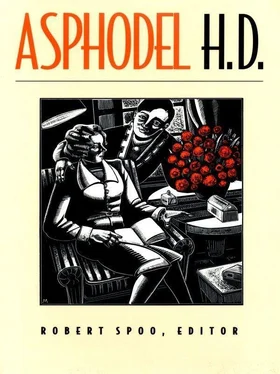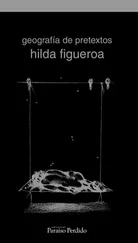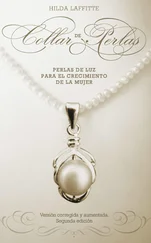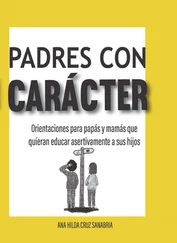What a nice little house. What a dear little lady. What an odd little lady looking so smart and somehow not at all the sort of thing you would ever in your mind remotely (ever and ever so remotely) associate with Walter. “O Mademoiselle Raigneau. It was ever so kind of you—” “Then you are— with— friends?” “Yes, Mademoiselle Raigneau. A girl and her mother—” “O, and her mother?” “O yes, Mademoiselle Raigneau.” Then did Walter live here? It was all so mysterious. “Walter will be coming later.” (She just couldn’t say Walter. It evolved into something that sounded like the frrr of the flap-flap of an old water wheel that is going in a pond but is no good but we won’t have the old thing broken up, its so picturesque. Vrrralter.) “O but I came to see you . To talk to you . It was kind of you to let me come to talk to you.” “Walter,” (but you couldn’t write the way she said it) “says you — help him.” “O how could I help him, ever, ever dream of helping Walter.” And before Hermione could finish the half bite of the excellent croissant she had begun to bite before the second half of the bite was over, Mademoiselle had begun, begun to pour out something, a long, long story, long, long story, what was it all about, her sister and another sister who had a child and how they were together in the country and how Walter was fond of her brother-in-law and how her mother was not dead but still living in their old château (which was really a farm though they called it a château) in the Pyrenees. They were part Spanish. Not really Spanish, only part and she and her sisters had played Walter’s violin concerto, she herself (had Walter told her?) played the violon cello. O how odd. No, Walter hadn’t told her. What a sunny small little lady to be grappling with a violon cello. Like a little lady bird climbing up, up, a huge, enormously huge sort of shiny chestnut. Great horse chestnut. France was all chestnut trees, châtaignes, they called them but it was marron glacé. Rather like a chestnut, like a marron glacé. Small compact and brown. How different from anything one could ever, even so remotely associate with Walter. And now she was plunged on with a history of her family. “You understand my English?” “O everything.”
Tiny exquisite room. This was the “friends” up the street. All arranged. Fayne Rabb and Clara rather hurt. “But he wants me to see them alone.” “Them? Are there others?” “Others than what?” “Why than this — some woman I suppose he’s got entangled with?” “No. Friends of his. The Raigneaus. I don’t know who exactly. People who do things.” “Obviously.”
“You didn’t bring your friends?” “Walter thought there would be too many. I will, if I may sometime. I don’t suppose you’d care to come to see— us ?” What was the etiquette on these occasions? One couldn’t imagine little Mademoiselle Raigneau in their rue gauche little bedrooms. “We live in such a funny part. But you see being Americans, we love it.” “O yes. I know many Americans. My pupils. Girls who have har -mon-y with Walter.” “Does Walter teach?” “Well not really — much.” Dear little Mademoiselle Raigneau, smiling and such an entente all at once flaming up between them. A big fire in the autumn burning rubbish that was the smile between them. O, don’t scatter the leaves, pile them in , don’t let the wind blow them about. They’ll blow up —you know (they said we mustn’t and set fire to the roof ). Roof on fire, a little danger somewhere, being very careful with the slightly illicit pleasure of poking the fire. That was the smile between them. O yes that was the smile between them. They were being something funny together, not the horror, the blank starkly insane horror that stared at one with white sea-eyes out of Walter’s music. Let’s forget Walter. They didn’t talk at all about Walter. They were playing illicitly with garden rakes, at a little barn fire, don’t let the leaves scatter. They’ll find out and stop us. O they were so méchantes, all the time and began talking about clothes and did Mademoiselle — O but let me call you Hermione, Walter does — like dresses? What colours? Yes. She (now you must call me Vérenè—what a heavenly name, it sounds like verbena) herself sometimes liked very pale bois de rose, you know a sort of sea shell rose, do you understand? And Walter though you might think he never cares, sees everything. “Does he see ever? Doesn’t he — feel somehow. I can’t describe it. Isn’t Walter a sort of moth that has frozen, frozen — it’s all very inexact — a sort of moth whose feathers are snow crystals — O dear it sounds like a Christmas tree ornament — dear Vérenè—don’t let’s talk about him .”
Now they were playing together. Candles on the Louis something or other table burning with round little blobs of light. The candle flames looked round blobs of light like dandelion puffs with the sun shining on them, not clear and cold or turned knife edges away from a breeze like in Walter’s studio. The very quality of people determines the way their candles burn. This was a discovery. The walls melted away and were broken and cut with heavily framed rather over-luxurious paintings. Certainly French school, good paintings, might have been in some little obscure room of the Louvre. Very late French. Vérenè’s father had a picture in the Luxembourg. This was really people who do things. Something in Vérenè that though she was little and dumpy couldn’t have happened anywhere else. How odd it was her notes on the out of proportion cello that were making the background for Walter though naturally you would think Walter with his height and his Byronic splendour would be making the background for her, too small, little legs really too short, chubby efficient little wrist. Vérenè must have climbed trees in the Pyrenees when she was a child. Vérenè, not the sort of child really of Hermiones preference and somehow wrong with Walter yet somehow filling in a gap as if lonely pine woods should be inappositely filled with rose trees or rambling peonies, great bushes, half wild, with too much sun on them and the sun above smiting down to the low bushes though really loving the pine trees. The shaft of Walter’s poignant allegrettissimo was the sun far up in trees and the cold water running in, swift, swift, but water from an iceberg. Walter was water from an iceberg running in and in and in and the cello keeping up its buzzzzzz underneath was the inapposite hummmmm of many bees, bees, bees, in chestnuts filled with rose spike of pink wax flower. Chestnuts, roses gone a little riot. Low bushes not one’s own kind of bushes. An odd jungle. Walter went on playing but he was quieter, more human, his face not strained, torn and white. Walter would go mad if he hadn’t this stretch of low bushes, rose coloured bushes and small compact low growing trees to rest in. Walters genius was high, high in the trees and Vérenè was actually reproving him like a child. Vérenè was older, she had told Hermione. “Did it matter” Hermione had asked, seeing that she wanted her to ask it. How could it matter? “I feel I’m too — old.” “How mad. How silly. How could he want you other?” “Did he say anything?” O now what was she to answer? Walter hadn’t said anything, only he had — friends up the road. “He didn’t exactly say — anything. It was — in — the — air.” Vérenè accepted it. “But he spoke of— you .” “Well that’s different. We hardly know one another.” “No. He said so. He said he wanted your advice. Do you know music?” “O, no, no, no, no, no. Mademoiselle Raigneau. I write — a—little.” Music. Writing. What could one say or how could one say it? “Don’t worry at me.” That was the only thing to say but Hermione couldn’t say it. Walter has, O it’s so odd, a sort of brain. I have too. That is even more odd. It’s the Gart formula and the Morse code between us. One couldn’t say that. She had hardly formulated it. But there was something of a butterfly rimed with frost between them. Little Vérenè would die at the first breath of frost. Walter (it was obvious) would kill her.
Читать дальше












